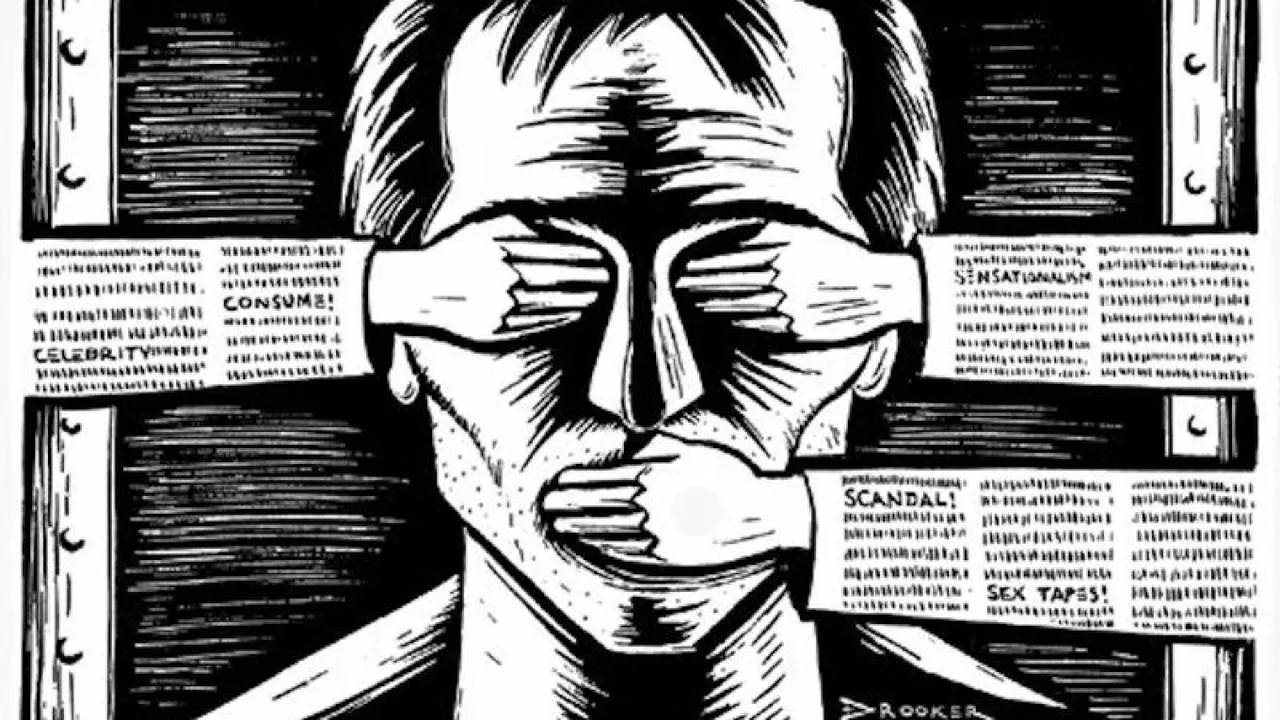I’ll Say What I Want… When I Want… And Nobody Is Going To Stop Me!

Within the context of movies, literature or even video games, the term “Censorship” is considered the most controversial word in the English language. It is normally synonymous with negative connotations that an end user simply does not want thrust upon them.
Restriction, control and manipulation are a few words that spring to mind.
However, the taboo subject of censorship remains prevalent to this very day. A “nanny state” protecting it’s children from the harmful effects of viewing the wrong material or reading a piece of text that may cause permanent scarring of the mind. Whether we like it or not, it exists and forms an integral part of the world we live in today.
But is censorship always this constricting shackle imposed upon creativity and limiting freedom of speech and expression… Or sometimes just a necessary evil we all need to respect from a much broader perspective?
Understanding The Concept of Censorship

The official definition of censorship is as follows:
“the suppression or prohibition of any parts of books, films, news, etc. that are considered obscene, politically unacceptable, or a threat to security.”
I believe a lot has to do with the source of who and where the censorship stems from. Take the following example:
An author pens out his latest novel but due to the subject matter of the book, reaches a part which harbours overtones of anti-behavioural stereotyping. The author feels that leaving that particular paragraph intact may alienate certain demographics of his readers therefore removes the offending material. It's their ideas, their final say. Censorship straight from the place of origin.
In the case of “A Clockwork Orange”, director Stanley Kubrick himself issued a ban on his movie being released in the UK. Reason being there were a spat of “copycat” killings at the time thus he would regularly receive death threats upon him and his family. The media linked his film to the acts of violence. Although his decision was not a popular one for movie-goers within the UK, it was not met with as severe a backlash as if an external governing body had intervened instead.
I’ve found that people are generally more understanding with these types of critical amendments if they didn’t originate from an uninvolved third party. On the contrary, the BBFC or PEGI, inherent want to restrict the creator’s vision of what they wish their target audience to see. It all seems to boil down to the masses not wanting to be controlled and puppeteered by an invisible set of “domineering parents”.
Censoring for The Good of The People

While I’m quite against censoring for the sake of not offending certain limited groups within our society as a whole, there are exceptional circumstances where the outright banning of certain material can be advantageous for the greater good of the people. An popular example includes:
The Anarchists Cookbook – In case you’ve never heard of it, as the title infers, it’s context revolves around the production of items or products deemed highly dangerous and illegal. Tutorials include detailed instructional manuals and ingredients necessary to create home-made bombs, strong intoxicating drugs (such as LSD) and invasive hacking tools.
Upon release, this book was instantly classified as a dangerous threat to the public at large. Australia issued a banning order within days due to not being able to grant it a classification and the UK arrested several people on terrorist charges who were found to be in possession of the book.
My opinion is that there are no redeeming features in this book to warrant it’s continued publication. It serves no other purpose than to endanger the lives of others and cause as much chaos as possible in an ordered and structured society. In this case, I support censorship to the fullest.
This was a publication inciting real world criminal activity and promoting tangible problems for us all. In my mind, very different from a fictional creation born out of the imagination of an individual and marketed for the entertainment of others. From my point of view, there is a clear difference between the two.
The Most Common Reasons for Censorship

When discussing censorship, there are many factors at play when looking at the reasons as to why certain materials were deemed unsuitable for the masses. Here are a few I would rank quite highly:
Time – As humanity progresses throughout different eras, so do our ever-changing perceptions of morals and values, what is considered right or wrong. Gay people were, not too long ago, chastised and even thrown in jail for committing unlawful acts, however today it is a widely accepted type of relationship which even enjoys most of the benefits that heterosexual couples do.
The book “Lady Chatterlady’s Lover” written by D. H. Lawrence chronicles the life of a woman whose sexual frustrations led to affairs with various young men. Published in 1928, the language and subtext used was widely regarded as too provocative and explicit for public viewing. This in turn lead to several countries banning the book and subsequently a high profile court case in the UK involving it’s publisher and the newly introduced “Obscenity law”.
Religion – As controversial a subject matter as you can get, even by today’s standards, religion plays a pivotal role as to what is considered accepted or detrimental material for public consumption. With some more than others, religious turbulence has often led to extreme public outcry. Rewind further back in history and the consequences have even resulted in the death of the accused.
A popular case relating to this type of censorship was “Satanic Verses” by Salman Rushdie. Upon it’s release back in 1988, this book discussed the Prophet Muhammed at great length which included defamation claims, derogatory terminology against him and used explicit language that attacked Islam. This had the unfortunate reaction of Iran’s supreme leader at the time (Ayatollah Khomeini) to issue a “fatwa” against him (an order for him to be killed). Shortly afterwards, Salman Rushdie's editor (Hitoshi Igarashi) was stabbed to death, therefore forcing Salman himself to go into hiding. Even after all these years, he still lives in fear for his life and maintains a very low profile.
Age – We, as adults, can get complacent in what you view as acceptable for children. In that, as we progress through life, we naturally get desensitized to more mature content. Swearing, darker themes and dealing with topics such as death have a very different impact on our young than they would do on us. So, in fact, censorship might actually be a positive thing in this instance. However, all is not so cut-and-dry. There have been grey areas opening room for debate.
You’d be amazed at the amount of children’s books we take for granted today which were banned at some point in our past. From “Alice in Wonderland” to “The Harry Potter Series”, even something so seemingly innocent as “Charlie and the Chocolate Factory” have been cast under the ever watchful eye of scrutiny.
However, “The Lord of the Flies” by William Golding wins hands down as the book that was the most reviled of all children’s book. The plot centres around a group of children left on a deserted island to fend for themselves, leading to enemy factions being created and ultimately their own deaths. I suppose it’s not surprising that many schools around the world struck it off their library lists. For years afterwards, it was considered a classic never having been read by the generation it was originally intended for. The irony of it all.
A Prisoner Within Our Own Creativity?

Censorship will always exist in some way, shape or form. Across every genre and media art form, we all labour under a specific set of criteria so as not to offend, but engage with our desired audience. Unless of course, you are purposefully looking for the “shock factor”. as your selling point.
It entirely depends on which sectioned demographic of people you are trying to reach out to. Before even beginning any personal project, a list of check-boxes indicating what may or not be classed as acceptable for your proposed subject matter, would be a good place to start. As I'm sure we're all in agreement that the end result should prove a positive one, leading to your improved reach and thus... deserved recognition.

